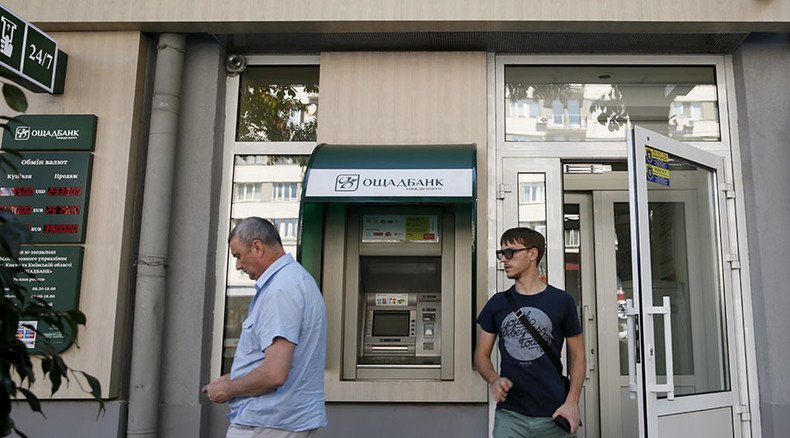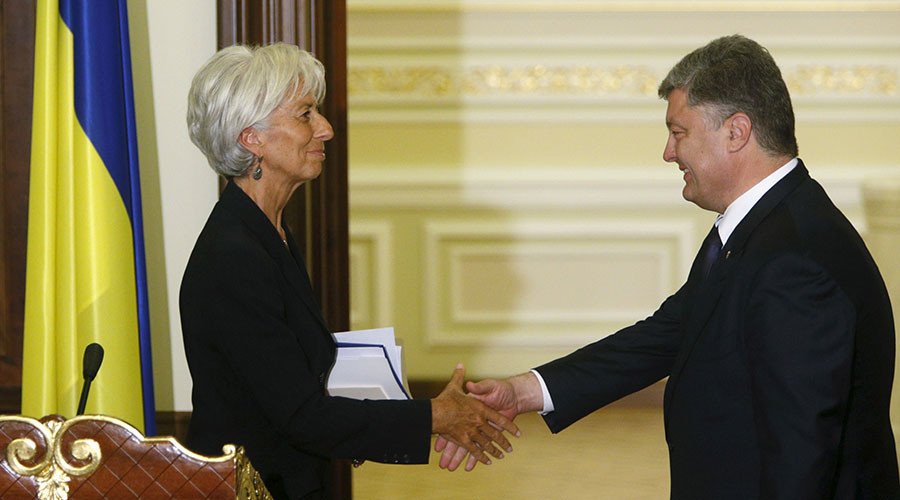‘Ukraine debt: No progress to give bondholders optimism’

Ukraine hasn’t reached any progress on securing property rights, solving the failing currency problem and others that would give its bondholders any optimism, Jeffrey Albert Tucker, Distinguished Fellow of the Foundation for Economic Education told RT.
READ MORE: Standard & Poor's cuts Ukraine's rating to 'selective default'
Ukraine has defaulted on its debt, according to a global trade association, ISDA.
RT: What does this default mean for Ukraine's economy?
Jeffrey Albert Tucker: …It doesn’t mean anything in particular for Ukraine debt. The people who are left holding a bag here are the bondholders themselves. What was announced was two credit events – ….[Ukraine’s] repudiation moratorium and a failure to pay. That triggers certain events that have to take place. What they indicate is less likelihood that this debt will ever be paid. We are on an exorable march towards this reality that I think the markets increasingly realize. And the value of Ukrainian debt is reeling on the free market. The free market never lies.
ISDA EMEA Credit Derivatives DC: Republic of Ukraine Repudiation/Moratorium and Failure to Pay Credit Events http://t.co/JaPUxcEPpQ
— ISDA (@ISDA) October 5, 2015RT: EU creditors have already poured a lot of money into Ukraine's economy. Do you think they're going to release further funds?
JAT: Most likely not. I mean we’re headed towards repudiations – it is going to be a matter of time. When Russia is taking Ukraine to court over some portion of the larger debt, this is going to be litigation for a very long time. The IMF is ultimately going to have to decide, but it’s a mess. The biggest problem for Ukraine right now is not even its debt, which is actually a very serious problem, but the fact that its economy is not structured in a way that permits robust growth now or in the future. The latest index of economic freedom came out and lists Ukraine way down the list – it is one of the least free economies in the world, and that is just not the kind of economic structure you need to survive in today’s world economy.

RT: Despite the magnitude of the situation, Ukrainian media is not yet covering the story - why do you think this is?
JAT: Why the media covers what it does and what it doesn’t- it’s hard to say. For one thing the subject is seemly boring. But actually it’s momentously important and much more important than politics in Ukraine. This is going to affect Ukrainian relationships all over the region. The effects are felt in US financial markets too. These kinds of things do matter, but economics rarely matters to most of media unfortunately.
The concern for Ukraine is in the future – are we going to secure property rights? Are we going to open up trading relationships with the world? Are we going to do something about the failing currency? Are we going to do something about the top heavy government structures and regulations? And here we’re not seeing any progress that would give any bondholder of Ukrainian debt to any degree of optimism whatsoever.
RT: Is there a chance Ukraine’s creditors will write off its debts?
JAT: I’m expecting that repudiation is inevitable at this point. Its creditors are probably best off to take what they can get.
LISTEN MORE:
The statements, views and opinions expressed in this column are solely those of the author and do not necessarily represent those of RT.












